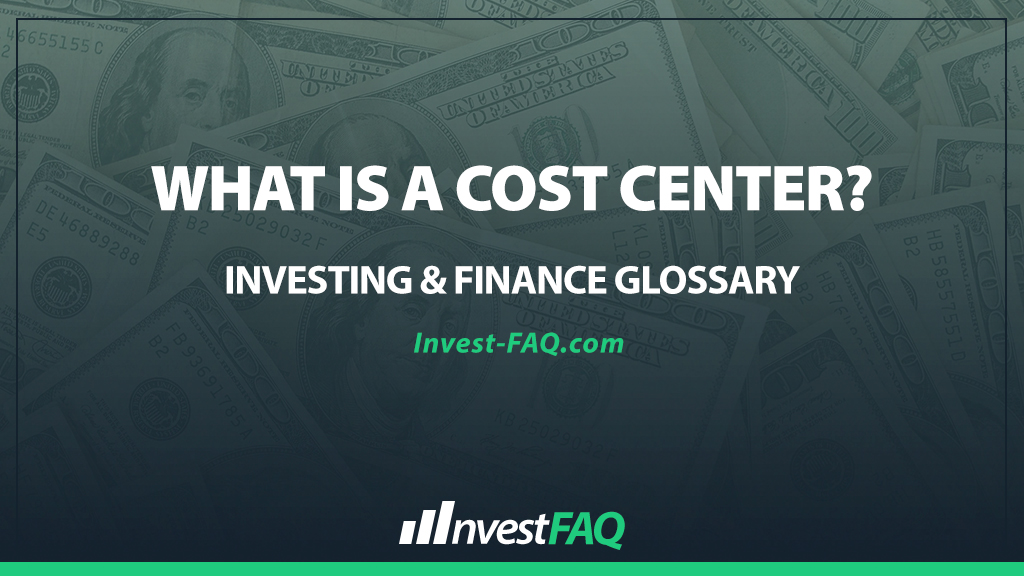
Cost Center
Contents
A cost center is a department or segment within an organization that does not directly contribute to profit but incurs costs. It is a crucial part of financial management, helping in analyzing, controlling, and optimizing the costs associated with operational activities.
Cost centers are essential in business for budgeting and financial control purposes. They allow for the tracking and management of internal costs, enabling companies to identify inefficiencies and areas for improvement.
Common examples of cost centers include research and development (R&D), marketing, human resources, and customer service departments. These areas are vital for the functioning and growth of a business but do not generate direct revenue.
Example of a Cost Center
Consider “XYZ Corporation,” which has a dedicated customer service department. The costs associated with this department, such as salaries, training, and utilities, total $100,000 for a quarter. These expenses are classified under the customer service cost center.
Management reviews these costs periodically to ensure they align with the company’s budget and operational goals, looking for ways to increase efficiency without compromising service quality.
In the case of XYZ Corporation, the customer service department’s costs are monitored as part of the cost center’s financial management.
By analyzing these costs, management can assess the effectiveness of customer service operations in relation to the overall budget. For instance, if costs are consistently over budget with no corresponding increase in customer satisfaction or retention, the company might explore strategies to streamline operations, such as adopting new technologies or reevaluating service protocols.
Types and Uses in Business Scenarios
Cost centers play a vital role in various business scenarios, including:
Budgeting and Forecasting: Providing detailed insights into specific departmental expenses, aiding in more accurate and effective budgeting and financial forecasting.
Performance Evaluation: Assessing the efficiency and productivity of different departments, helping managers make informed decisions about resource allocation and operational improvements.
Cost Control: Identifying areas where costs can be reduced without negatively affecting the output or quality of operations.
The flexibility and focus of cost centers make them invaluable for financial planning and operational management across all types of organizations.
Significance for Investing & Finance
From an accounting perspective, cost centers are significant for several reasons:
Expense Tracking: They offer a systematic approach to tracking and managing indirect costs, facilitating more precise accounting and financial reporting.
Decision Making: Cost center analysis provides management with crucial data for strategic decision-making, helping to optimize operations and reduce unnecessary expenditures.
Cost Allocation: They aid in the allocation of overhead costs to products or services, contributing to more accurate product costing and profitability analysis.
In summary, a cost center is a fundamental concept in both accounting and management, enabling businesses to monitor, control, and optimize their operational costs.
While cost centers do not generate direct profits, their efficient management is essential for sustaining the overall profitability and competitiveness of an organization.
FAQ
How does a cost center differ from a profit center within an organization?
A cost center focuses on minimizing costs for activities that do not directly generate revenue, whereas a profit center is responsible for generating income and is evaluated based on its profitability.
Can the performance of a cost center impact a company’s bottom line?
Yes, even though cost centers do not directly generate revenue, efficient management and reduction of costs within these centers can significantly improve a company’s overall profitability by decreasing overheads and improving operational efficiency.
What role does cost center management play in strategic planning?
Cost center management contributes to strategic planning by providing detailed insights into operational costs, helping leaders make informed decisions about resource allocation, budget adjustments, and potential areas for cost savings.
Are there specific tools or software used for managing cost centers?
Yes, companies often use specialized accounting software and cost management tools designed to track expenses, allocate costs, and analyze financial performance within specific cost centers, enhancing control and decision-making processes.
